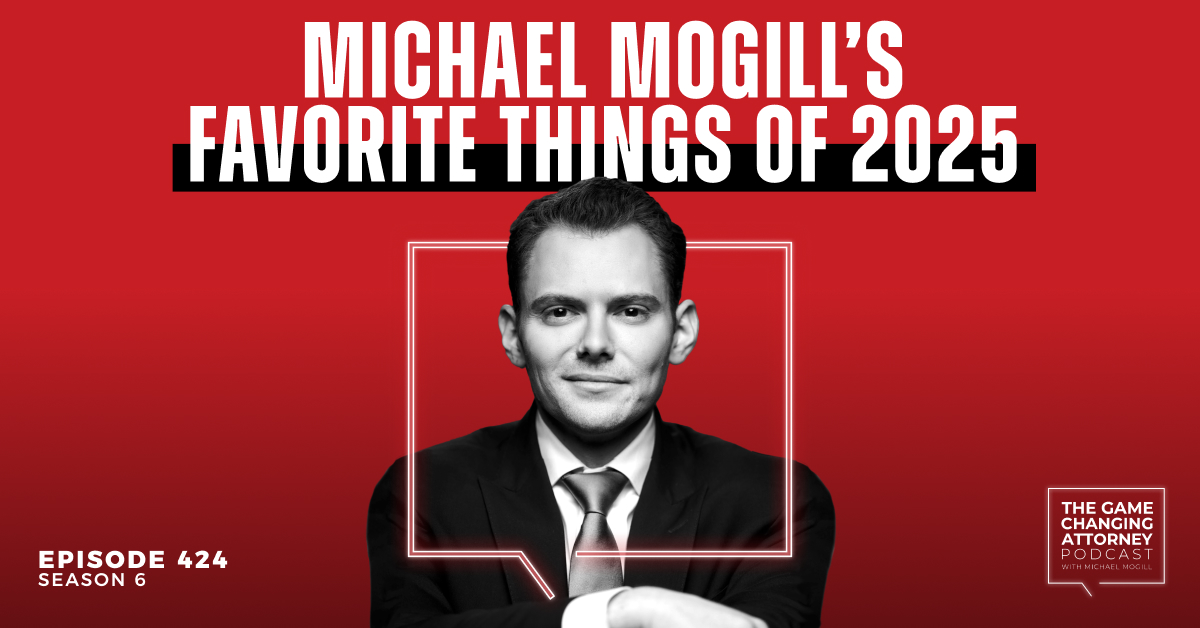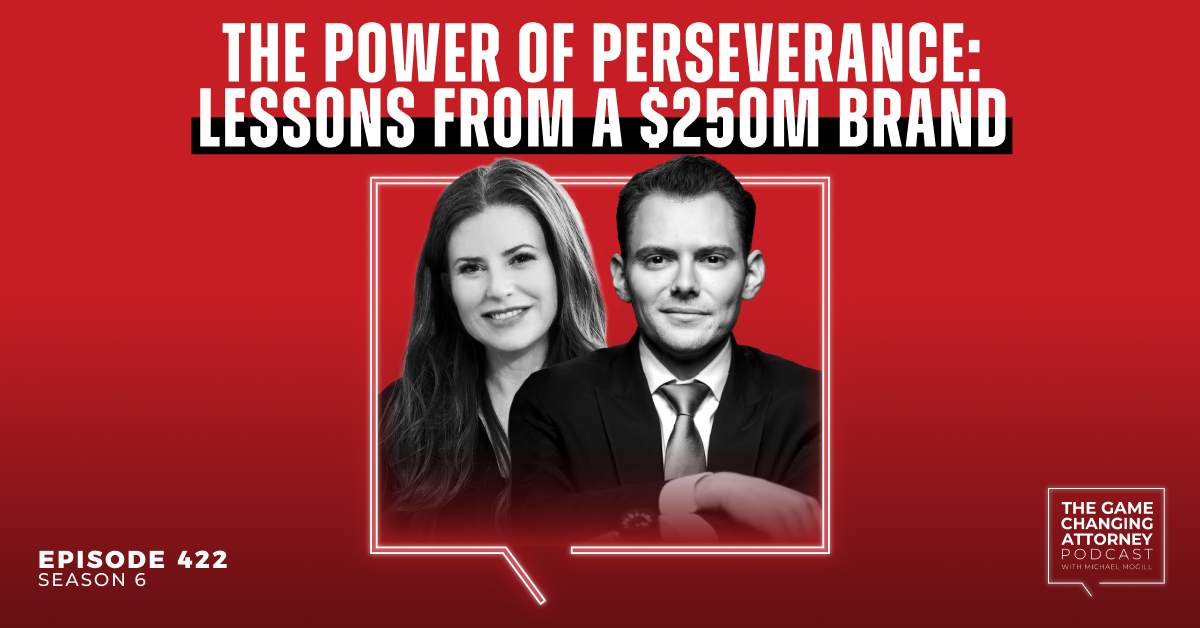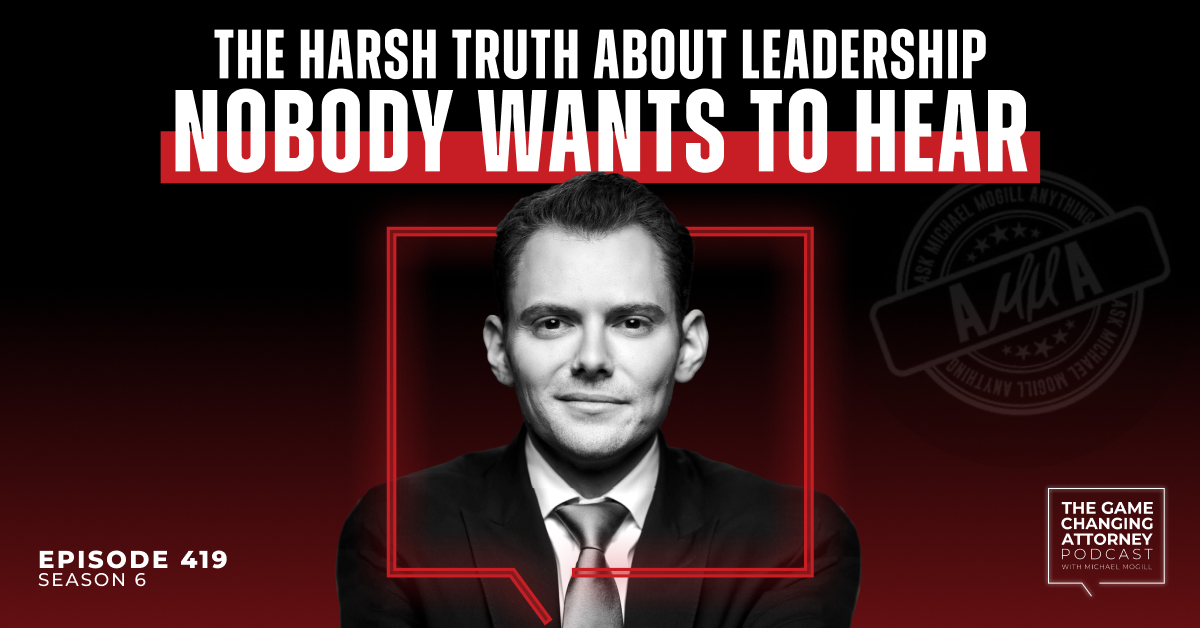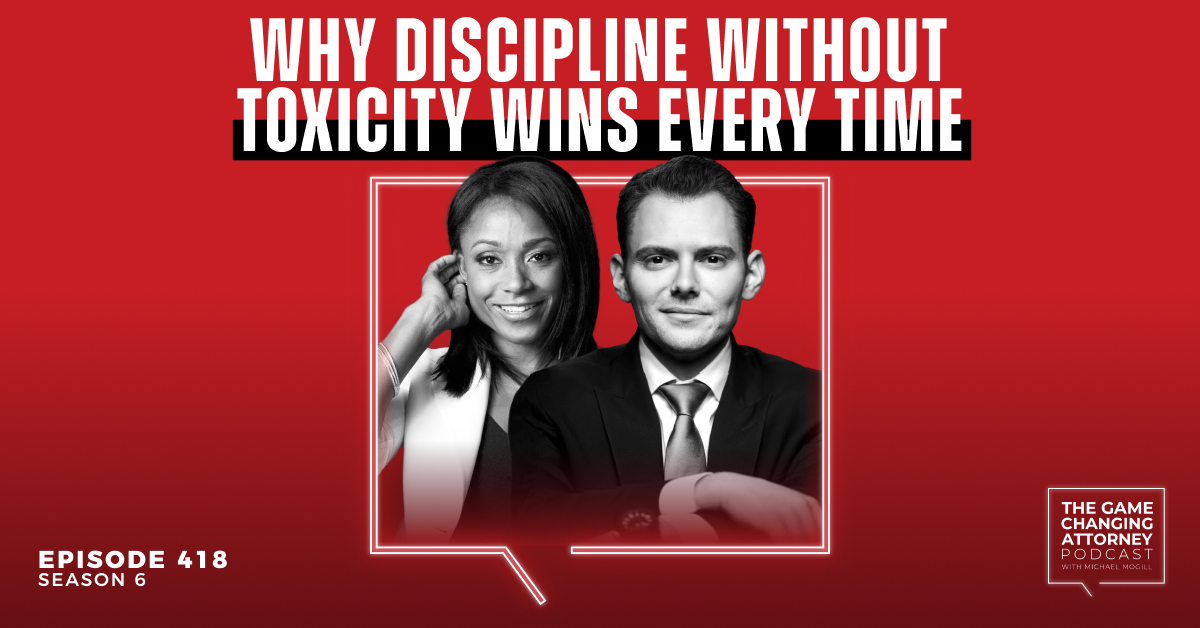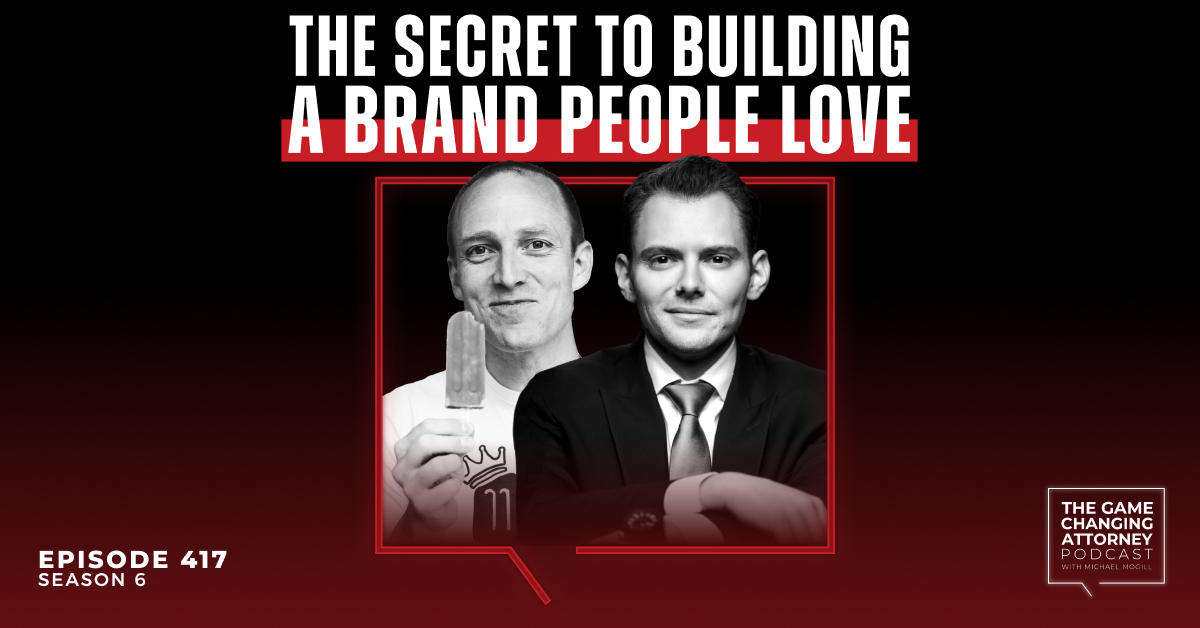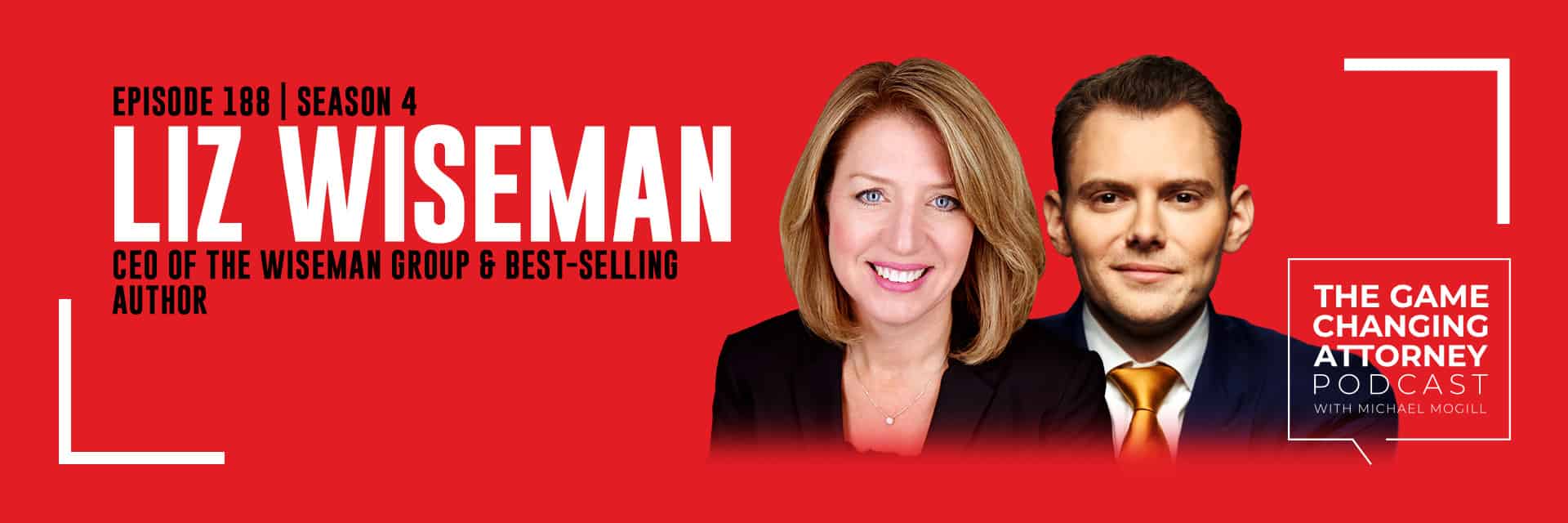
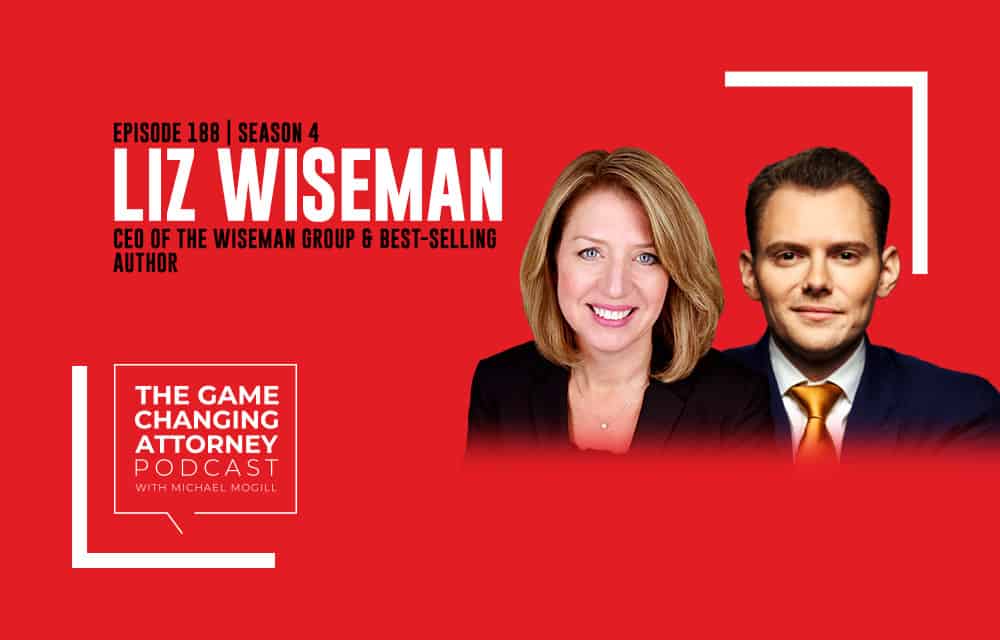
Episode 188 — Liz Wiseman — Impact Players: How to Take the Lead, Play Bigger, and Multiply Your Impact
Management researcher, executive advisor, and New York Times best-selling author Liz Wiseman is fundamentally changing the way leaders lead and teams operate.
In this episode of The Game Changing Attorney Podcast, Liz and Crisp Founder & CEO Michael Mogill explore:
- How to attract and retain impact players for your law firm
- What it takes to become a truly effective leader
- Proven ways to inspire your team to greatness
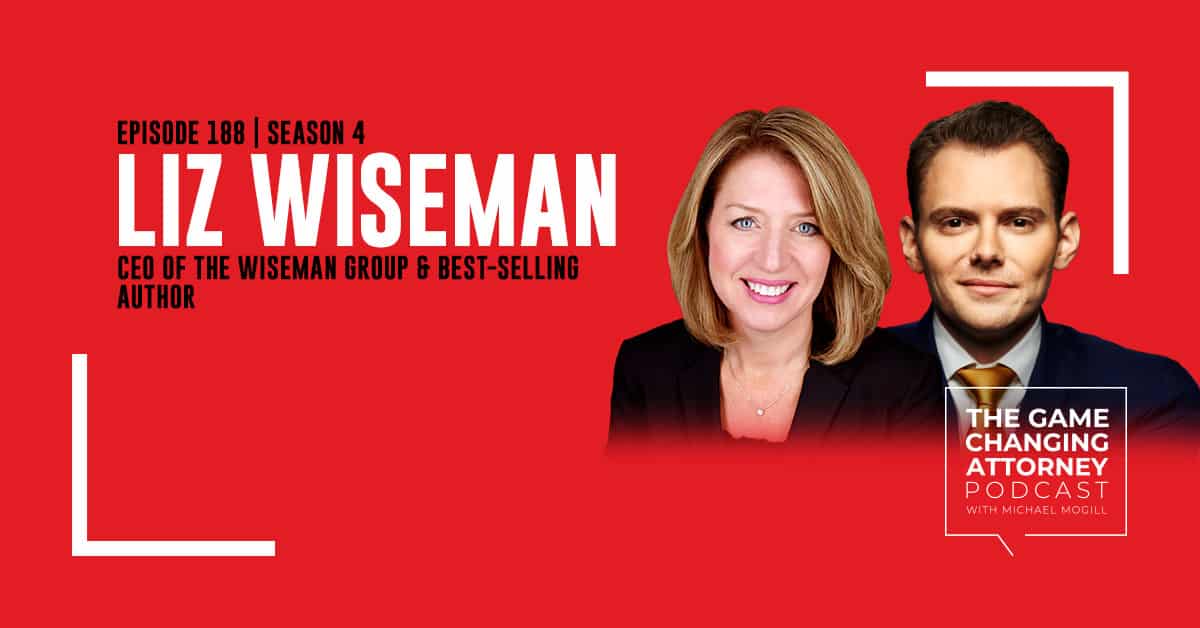
Listen & Subscribe
Show Notes:
People want to give more. “People are wired for contribution. When people work for leaders who under-utilize them, they describe the experience not as a good thing, but rather as frustrating and exhausting to under-contribute. They come into work knowing that they have more knowledge, talent, and insight than their job requires — just phoning it in is miserable for people in those situations.”
What is an impact player? “An impact player is a talented standout contributor who raises the level of play for the whole team. I started this research with the assumption that this extends to the work world. If you ask any manager who their impact players are, they will tell. Those names come to mind very quickly, and sometimes they don’t even really know why. There’s just something about those people. I want to know what makes those people different and what makes them tick.”
Your dream team is possible. “It behooves managers and business owners to find the impact players out in the workforce and bring them into their organizations to see if they can raise the playing level for the whole team as well. How do you build an entire team of impact players? Unlike the concept of an MVP where there’s only one person involved, it’s possible to build an entire team that is thinking and working in the same way.”
Why empathy is a game changer. “The best contributors are empathetic. They look at their clients, the partners at their law firm, or just concepts and legal ideas and try to accomplish them. Instead of getting frustrated and complaining about the client or the partners or the concept, they look at them asking, ‘What’s difficult about the position they’re in right now?’ They ask what they can do to help make their lives easier.”
Tell your team what’s important, not what to do. “The most important thing leaders can do is give their employees context and keep tasks and overall goals evergreen. As things change on a daily basis, their team members can keep going back to what they’re hoping to accomplish. Instead of telling people what to do, describe what’s important and why — then let other people figure out to be of service to that agenda.”
How to become your boss’s favorite. “Bosses don’t want someone who waits to be told what to do. They don’t want attendance — they want people who are anticipating problems. In fact, the number one thing that bosses tend to appreciate most is doing things without being asked. They want people who aren’t just loyal followers, but rather people who take on a deputy role, or are even a little bossy.”
Seek feedback constantly. “Look for micro-feedback when you can. Don’t just wait for annual performance reviews or something big like that. Ask what you can do that will help you perform better in general, or how you can help make the work flow more smoothly. If you want people to step up and lead but also step back and follow others, show your team how to do that.”
Ambition doesn’t equal success. “Sometimes the most ambitious people are the least successful. When they’re overcome with plans, habits, and ideas, there are consequences and they can become overwhelmed. By trying to do so many things at once, they can end up not doing anything at all. Instead, they’re doing a lot of new things poorly. The people who make the biggest changes are the ones who plan to do one thing differently. Things tend to escalate from there.”
Make your team feel safe — but challenged. “The best leaders create an environment of safety. They allow their team to speak the truth and give them to lead even when no one has anointed anyone the leader. They have the trust needed to be able to hear difficult feedback. That’s not always enough, though. Great leaders also create an environment where people are stretched and challenged.”
What does being a game changer mean to you? “A game changer is someone who’s thinking. They’re not just playing the game by the rules and in the boundaries. If they’re changing the game, they’re always thinking outside of typical and normal situations. They want to change the game and continue winning at it too.”
RESOURCES & REFERENCES
Multipliers: How the Best Leaders Make Everyone Smarter by Liz Wiseman
The Wiseman Group
Ford
Google
Apple
Tesla
Connect with Michael
- Text directly at 404-531-7691
